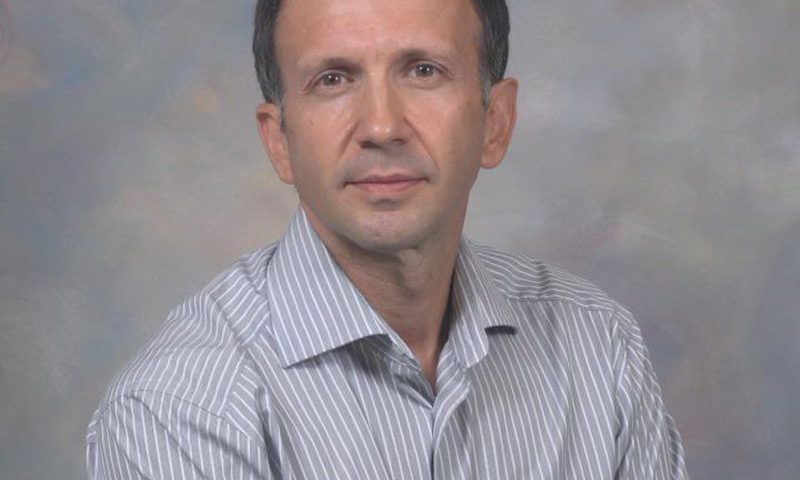- Κλείστε το ραντεβού σας σήμερα
- +30 2106895001
- info@fertilitydesign.com
Dr Michalis Fragkoulidis “Insufficient the information women receive towards family creation”

Πως η γονιμότητα επηρεάζεται από τη σχέση του ζευγαριού
6 Δεκεμβρίου, 2016
SOS-Fetal heart disease and how to prevent it
14 Δεκεμβρίου, 2016
Making a family constitutes a dream; a dream that nowadays tends to be neglected or even “chronically transferred” in the life of the couple due to the need of women to focus more on their professional and social life. However, this kind of neglection can lead to a delayed conceive. Thus, women who pay more attention to their professional and social life risk the chance of having a child and increase the chances for an unsuccessful or problematic pregnancy in the long term.
Obstetrician, gynaecologist and fertility specialist Dr Michalis Fragkoulidis, – partner with GENNIMA, a fertility clinic in Athens and specialized in the research and treatment of both male and female infertility as well as in Hysteroscopic and Laparoscopic surgery – analyzes the struggles and difficulties infertile couples face and illustrates contemporary assisted reproduction methods.
- Which is the age limit women address to a fertility clinic;
The age range of women addressing themselves to a fertility clinic is between 25 and 45 years old, while for older women this initiative constitutes a hard decision to be made. However, it is a matter of fact that even women of a much younger age (22-25 years old) confront with fertility issues and come to us – from the suburbs or even from abroad – to discuss their difficulty and find the source of their “problem”. Mainly, in this case, we talk either about couples with male infertility dilemmas or about relationships in which women had a lot of partners before and thus they may have blocked fallopian tubes and so they cannot conceive. The reason these women visit us is the close, unsocial and prejudiced environment of the province and the pressure they have to deal with every day in these small societies for not being able or facing difficulties while trying to make a family.
- You started your career in 2001 in the Cancer-Oncological Hospital of Athens St. Savvas, in the women oncology department. From 2003-2005 you continued your research and studies in UK, in hospitals in London and London boroughs as well, gaining essential experience and knowledge in the management and treatment of all obstetric-gynaecological disorders. So, could you please give a further insight into that experience of yours?
During the period of my medical specialty in London I worked on the pathological lesions of the cervix caused by pathogens and in particular by the human papillomavirus (H.P.V.). I am a certified doctor from the Royal College of Obstetricians and Gynaecologists (RCOG) on the Colposcopy and Cervical Pathology from the British Society (BSCCP) as well as I own a Diploma from the Faculty of Family Planning (DFFP).
From 2005 to 2008 and after getting the diploma for my medical specialty, I started making a research in the reproduction medicine, in the IVF Center of London “London Fertility Center”, under the academic guidance of Dr. Ian Craft, who was my mentor during my professional training and the treatment of one of the biggest problems nowadays: the problem of infertility. I was his last trainee and Dr. Ian Craft was one of the most famous doctors in assisted reproduction worldwide. By his side and within London Fertility Center I learnt to work with passion and stay focused on an efficient management of couples who suffer from infertility issues or couples who had already been through many IVF cycles. Furthermore, since 2007 I got a specialization from the Royal Free Hospital of London under the guidance of Mr. Adam Magos, in Hysteroscopic and Laparoscopic surgery, during assisted reproduction cycles.
- Which are the factors you think that can cause or even increase infertility disorders nowadays?
The problem of infertility constitutes a longitude phenomenon many couples have to deal with. However, nowadays there are high standard equipment, techniques and facilities as well as executive medical knowledge in order to treat male and female infertility and proceed to further research in the field. Moreover, nowadays, women are not getting married or starting a family in the early years of their adulthood. Instead, they focus more on their social life and as a result conceiving is becoming a hard part during their lifetime, since years are passing and the natural age affects the quality of the oocyte and most of the times, this situation results to miscarriages. Furthermore, modern women tend to meet more partners, than older women used to, without taking any precaution measures. In other cases, these type of women prefer to stop their pregnancy when in the meanwhile they are exposed to infections that can harm the tubal and uterine function.
The age on the other hand constitutes a determining factor for women since after the age of 35 years and especially after 40 years old the chances for conceiving and give birth to a healthy child are lessen dramatically. Another element that can lead a couple to assisted reproduction treatment is the male infertility, a situation that in the past was treated with prejudice due to the local and social stereotypes according to which men could not have any responsibility on the infertility problems a couple might faced.
What is more, what can also lead to infertility issues are different gynaecological disorders like fibroids, uterine malformations, endometriosis etc.
- The IVF treatment cost is significally high for todays’ economic crisis rates. How do couples addressing to you confront with such a cost?
The IVF treatment cost is much lower in Greece compared to other countries’ cost numbers in Europe. I could definitely say that in Greece the aforementioned cost corresponds better to the financial needs of couples nowadays and with the same or even better results since the educational level of doctors and the medical experts in the laboratories make the difference in comparison to Europe. The high cost of an IVF treatment is due to the operating expenses of the IVF laboratories.
Coupes that undergo an IVF treatment, usually, they are already married for some years, they over 35 and most of the times they are professionally, financially and socially ready to proceed with such a treatment in order to bring in life their child and start a family. Couples of younger age, usually, they get help from their parents.
- Which is the highest number of IVF treatments a woman can go through?
Tough question. The secret here is not how many times a woman can go through an IVF cycle but if she fulfills the requirements to conceive and create her own family. There are many times, women who fulfill the medical requirements and have the guidance of a good gynaecologist who will work on their infertility issues and slide over them, they accomplish their effort without the need to go through a lot IVF cycle treatments. However, doctors should always exclude breast and gynaecological disorders because of the hormones an IVF cycle treatment requires.
Most of the times, women who go through an important number of IVF treatment are those women who either didn’t have the right medical approach or they didn’t have the requirements to bring a child in life due to uterine disorders which diagnosis was made late. The biggest secret in our field is not how many oocytes the woman will produce, of what quality and how many of them will be fertilized but the acceptance of the uterine in an embryo transfer case.
I had a case of a woman, 35 years old, who had been through 10 unsuccessful IVF cycle treatments before and the two of them included oocyte donation. Before she came to my clinic, her doctor had suggested her to procced to one more IVF cycle with a donor’s egg and sperm. When she came to me, I detaily checked her medical background and after the right preparation of her uterine, the woman had a positive pregnancy test from her first time with me.
- Which is the difference between the classical IVF treatment and theICSI – Intra Cytoplasmic Sperm Injection?
In classical IVF, the oocytes are placed with a predetermined number of sperm to each one of them to penetrate inside the egg and fertilize it. It is of vital importance in this case the sperm to indicate a good number, with a satisfying moving rate and natural morphology. Many couples that face severe disorders in terms of male infertility, like azoospermia, they proceed to Intra Cytoplasmic Sperm Injection, since ICSI constitutes a good solution to the problem. ICSI – Intra Cytoplasmic Sperm Injection brought a revolution in the IVF treatment in 1990s giving hope to many people who face severe fertility problems. Applying Intra Cytoplasmic Sperm Injection, the embryologists choose the right sperm and injects it inside the oocyte. In this way, oocytes either of good or bad quality can be fertilized by a weak sperm.
- Which is the factor that affects women conceive nowadays?
I think what is missing is the right information of women on fertility staff before they start the procedure of making a family. Especially, from a specific age and after, a fertility checkup should be suggested to both men and women in order to prevent any disorders or problems that may come up during their effort starting a family. It is my firm belief that in the age of 30 women should proceed to a hormonal test and after the age of 34 and in case there is no partner in their life, they should proceed to oocyte freeze.
- Which are the possibilities for a woman in the age of 45 years to conceive after oocyte freeze in the age of 30?
This type of woman has really good chances to conceive since the oocyte is genetically of a good quality as the egg collection occurred at 30, an age at which oocytes are really good and with low chances to show any chromosomic disorder. However, this is not the case for a woman at her 40s who decides to proceed to an egg freeze. The quality of her eggs is really low. Finally, I should mention that in any case the uterine can be activated again, even in women going through their menopause.
- In which case a woman can proceed to an oocyte donation?
An oocyte donation program is usually addressed to women over 45 years old, to women who are under a premature menopause, to women who had undergone an ovary removal surgery or to women who had suffered endometriosis disorders.




